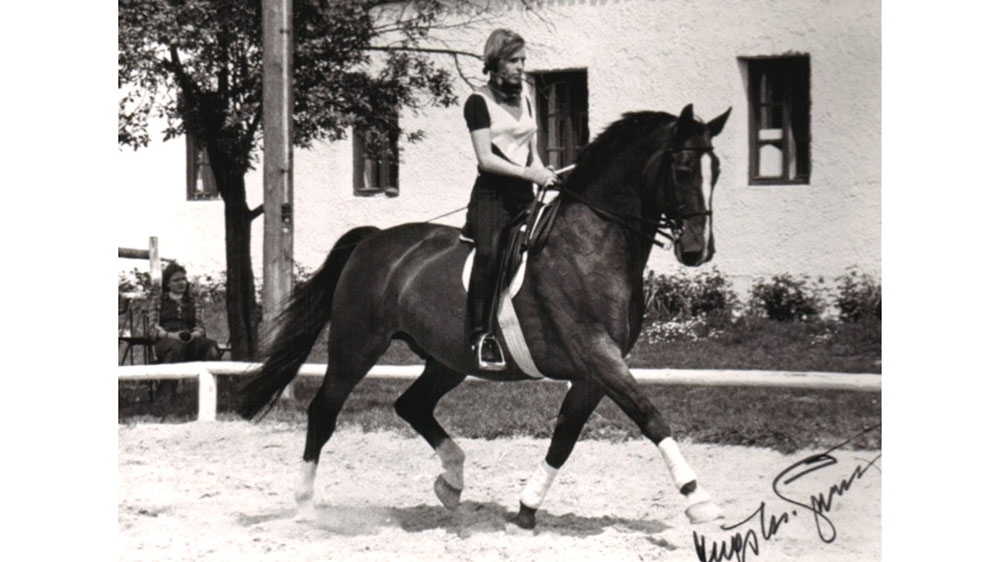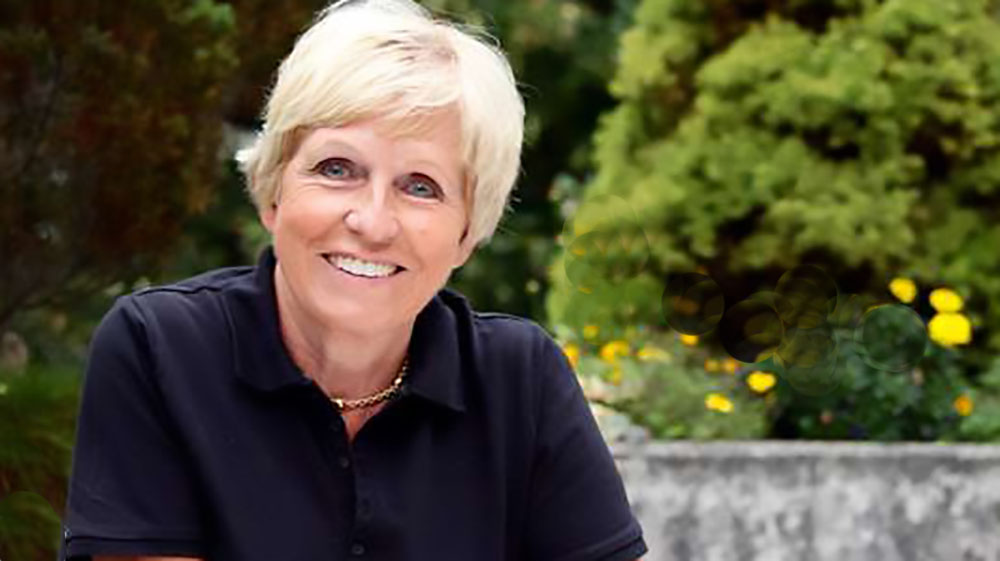
A recurring presence on the juries of many internationals in our country too, President of the Jury in Tokyo 2020, Kathrina Wüst offers an excellent contribution to the dressage movement also through stages and technical meetings in many countries, including Italy. Her training sessions are always highly appreciated for her ability to technically analyse both the horse and the rider. Dressage.it had the pleasure and the honour of starting with an article by Katrina on young talents and now presents her in her ‘classic’ role as an international 5-star judge.
What does dressage mean to you?
«Good dressage means a lot to me in several ways: 1. riding in its most beautiful form is a kind of ART for me; 2. good training makes the horses more beautiful and keeps them healthy; 3. as a rider you learn to practice your sport with a living being as a partner and to act sensitively and disciplined at the same time».
When did you meet dressage and when you decided it would have had such an important role in your life?
«When I was ten years old, my parents allowed me to take riding lessons. The stable in my neighbourhood happened to be one of the leading dressage stables in Germany, and that’s how I was automatically brought up with dressage. My riding success grew, and so did the importance of dressage for me. After having had three children, however, competing at shows became less important … and so I became a judge, which means that I am still connected to dressage».
Going to more technical matters, could you describe what in your opinion makes a winning dressage horse? And a winning dressage rider?
«Winning horses have
1. a good mind and an optimal temperament
2. rideability
3. a very functional conformation
4. three very good, elastic basic gaits.
A winning dressage rider must be sensitive, intelligent and always willing to control him/herself».
Breeding vs training… which aspect is more important when considering a dressage prospect?
«Both are important – however, a normal horse can be made a good horse by good training … whereas a top horse can be spoiled by bad training».
Talking about judges… How to improve relationship with them and how can they contribute for a better training?
«Judges should always be approachable and able to give valuable tips to the rider on how to improve their horse. Therefore it is important that judges are/were also riders»
Would you summarize for us your dressage principles?
«The horse’s suppleness and the harmony of the presentation is more important than the big show. However, I am very strict when a horse is uneven, because such a horse does not belong in the arena».
What is the weird/funny story that happened to you in the dressage world?
«My first international Grand Prix as a judge took place under the eyes of my ‘demigods’ Lette and Mechlem and I was slightly excited. The arena was largely under water after a downpour. The first horse came in and jumped over every puddle – I had to give one bad mark after the other and of course the respective remarks. In the middle of this first test, my scribe dropped her pen and said: this is too stressful, I’m leaving right now. AND YOU ARE GOING WITH ME! – to the tipper, who was apparently her husband. She gave the poor man no choice. Both of them left me stante pede and I had to write and operate the computer at the same time. It was indescribable how the sheet looked with scratches and corrections – I later apologised to the rider. This lady never wrote for a judge again … and fortunately I have never had a writer run away from me either».

Your dressage horse of a life-time?
«Do you mean one of my own horses? I had two favourite horses: the first was a very old-fashioned but very functional gelding by Wöhler called Whynot, whom I bought for little money as a pure amateur horse and with whom I was elected into the German B squad after only two years and became the most successful rider in Wiesbaden and twice in Neumünster in the 1970s. My second favourite horse was a very elastic Dutch horse called Roncalli. He had everything a horse should have … unfortunately, that was the time when I had my children, and that’s why our ‘career’ remained unfulfilled. I would have liked to have had him again later».
Your favorite rider, excluding yourself, and why?
«I don’t have a favourite rider, but I highly estimate many of our top riders for their great riding abilities».
Your dressage trainer of a life-time?
«Fritz Tempelmann, who was not very effective at presenting his horses at shows, but for whom the good training and the horses’ suppleness was always prio no.1 … when not every trainer had understood that in the early 70s».
Where are you based now? What are your plans for the future?
«I live in Munich and have a lot of things to do… inside and outside of the world of horses».




